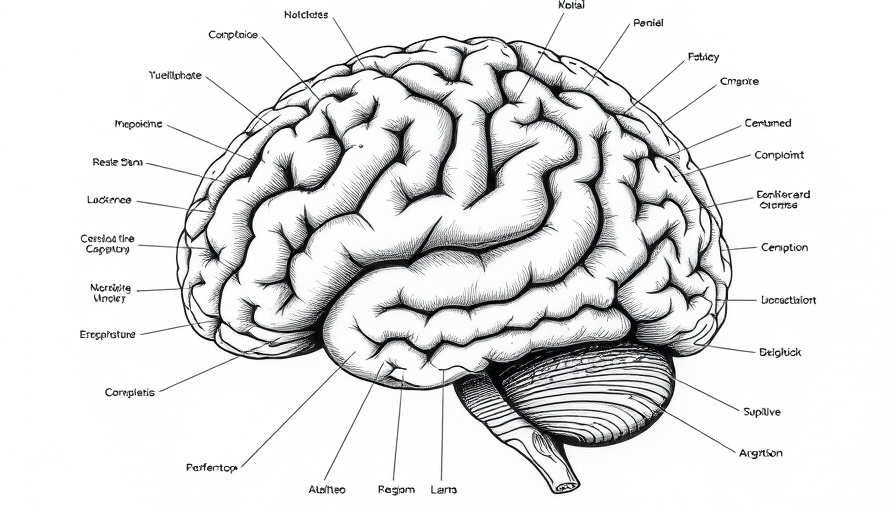
New Insights into Cerebral Cortex Functionality
Recent discoveries at Leipzig University’s Carl Ludwig Institute unveil that synaptic signal transmission in the cerebral cortex operates with remarkable reliability, even at low calcium ion levels. This finding contrasts sharply with synapses in the brain's rear regions, where signal transmission appears less dependable. Understanding this difference not only enhances knowledge of brain functionality but potentially influences advancements in artificial intelligence and neural networks.
How Does This Affect Brain Processing?
The brain, composed of roughly 100 billion neurons, processes all sensory perceptions, emotions, and thoughts through the intricate signaling between these cells. Synaptic communication occurs through a blend of electrochemical reactions, vital to bridging the gaps between neurons. The calcium ions play an essential role in this process, exemplifying the delicate balance required for effective neuronal communication.
The Role of Synaptotagmin Protein
A key finding from the research highlights the function of synaptotagmin 1, a sensor protein that significantly enhances signal transmission efficacy in the cortex. Unlike its counterpart, synaptotagmin 2, which is prevalent in the rear brain regions, synaptotagmin 1 reacts to markedly lower calcium concentrations, promoting more reliable synaptic responses. This trait not only contributes to the reliability of cortical synapses but also supports synaptic plasticity, allowing the brain to adapt and learn throughout life.
The Broader Implications of Reliable Neural Signaling
The reliability of synaptic transmission has implications beyond neuroscience. As the world swiftly moves towards integrating AI and deep learning, findings from this research can inspire improvements in neural networks. These networks, the backbone of contemporary machine learning, mirror human brain functions. Understanding how the brain remains adaptive and reliable even under variable conditions may lead to developing better algorithms that can process information more efficiently.
Connection to Health and Wellness
This research dovetails into broader discussions on health and wellness, particularly concerning cognitive health and longevity. Proper brain function is a cornerstone of overall wellness. As we age, understanding the mechanisms that govern our brain's communication pathways is vital. Enhancing synaptic reliability could be a pathway towards better health outcomes, particularly in combating cognitive decline associated with aging.
Future Predictions: Impacts on Brain Health
The insights from this study advocate for an ongoing exploration of synaptic functions, especially concerning health-related interventions. Future advances in natural and alternative medicine may harness these findings to craft therapies aimed at enhancing cognitive health. As the understanding of synaptic functions deepens, it opens avenues for novel health and wellness products aimed at improving mental processing, thus endorsing a lifestyle centered around optimal brain health.
Final Thoughts
Research into the cerebral cortex has far-reaching effects not only in the realm of neuroscience but also in various fields including health, wellness, and technology. The reliability of synaptic signaling discovered offers not only insights into our understanding of cognition but also influences the development of advanced technologies, linking the natural functioning of the brain with ongoing technological evolution.
 Add Row
Add Row  Add
Add 




 Add Row
Add Row  Add
Add 


Write A Comment